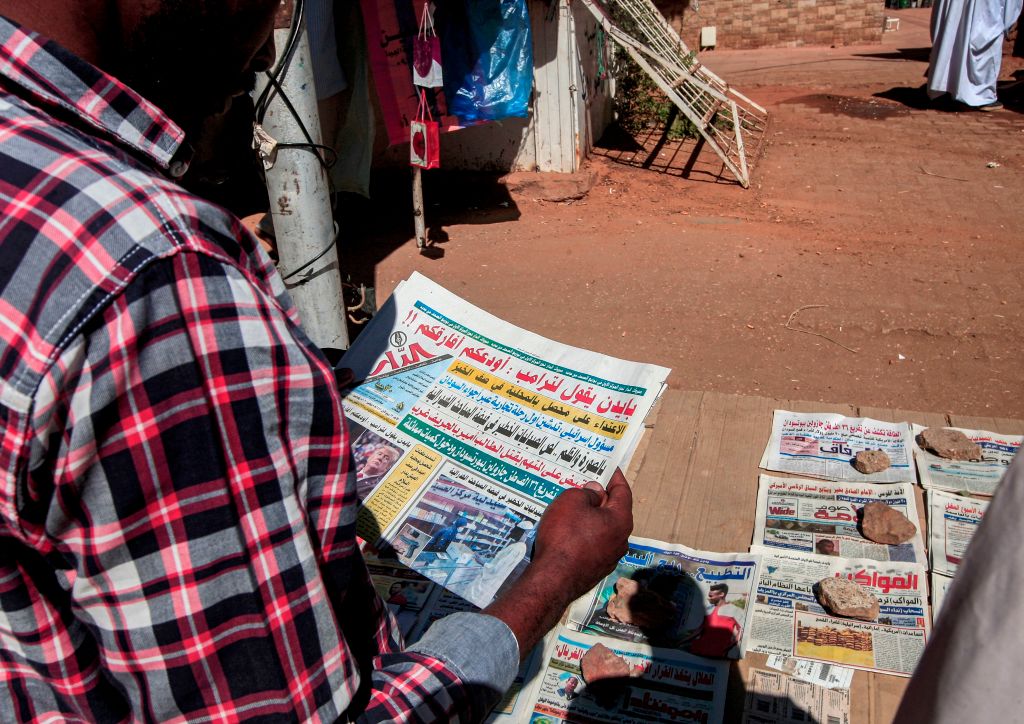ADF STAFF
Sudan’s warring sides are turning their attention to an institution they see as a common enemy: the country’s independent media.
Cyberattacks have become the weapon of choice for the Sudanese Armed Forces (SAF) and the Rapid Support Forces (RSF) as they seek to shut down media outlets to control Sudan’s information space.
“This war is largely a media war driven by misinformation,” Montaser Abdelwahid, editor-in-chief of Sudan-based Medameek, told Radio Dabanga. “They are killing the truth by obstructing reports on the horrific attacks taking place.”
Radio Dabanga is an independent news outlet covering Sudan from its base in the Netherlands. It relies on Sudanese sources to publish news online and through shortwave radio and satellite television broadcasts.
Since the SAF and RSF began fighting for control of Sudan in April 2023, the two sides have frequently targeted journalists.
According to the Sudanese Journalists’ Syndicate (SJS), 445 Sudanese journalists have been killed, detained, tortured or had their operations destroyed. As of November, 25 newspapers, at least seven television stations and 12 radio stations have shut down.
Cyberattackers target media groups’ websites and social media channels, hoping to eliminate them and their messages, according to experts. Sudan-based online news site Sudanile was shut down for a week in October when cyberattackers overwhelmed the site with false traffic and caused it to crash, a malicious barrage known as a denial-of-service attack. Sudanile has been the focus of at least four such attacks. It successfully fended off another one in November.
“Sudanile newspaper has been exposed to a fierce campaign and repeated hacking attempts, especially after the outbreak of the war,” Editor-in-Chief Tarek al-Jazouli told Radio Dabanga.
The attacks targeted the newspaper’s digital archives in an attempt to erase 25 years of history, al-Jazouli said. All the material eventually was recovered except for the most recent three months.
The Syndicate estimates that 90% of media infrastructure has been destroyed or looted.
“As a result, coverage adhering to professional ethics has declined in favor of war media and misleading news,” the Syndicate’s Iman Fadl Al-Sayed told the Sudan Tribune. “Both sides of the conflict monopolize information, broadcasting fabricated information fueled by the war machine, while harmful rhetoric erodes society’s fabric.”
In place of Sudan’s professional media, the warring sides push out their own version of events on social media, military-backed news sites and other sources.
“There is no information from independent sources about the military or humanitarian situation, except from the two warring parties,” Rashid Saeed, Radio Dabanga’s team leader for verification and news gathering, told Free Press Live 2024 in the Netherlands. “Only a few independent Sudanese media outlets continue to work from outside Sudan.”
Freedom House rates Sudan 28 on a score of 100 for its internet freedom, noting that the SAF and RSF manipulate information and intimidate independent journalists and anyone else who tries to report what’s happening in the country.
In spite of repeated cyberattacks and other attempts to shut down war reporting, journalists have a responsibility to report on the war and the humanitarian crisis it has spawned, Saeed said.
“The citizen is the center of our coverage, giving human faces to our stories, personalizing our coverage,” Saeed told Free Press Live 2024. “We can be independent, but we cannot be neutral. Our priority must be to bring a stop to the war in Sudan.”

